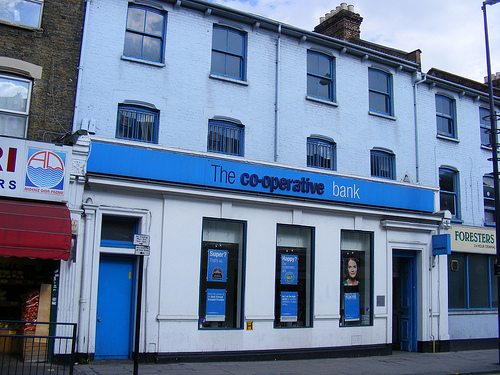

Features
What does the Co-op Bank’s rescue plan mean for its co-operative status?
Ed Mayo, secretary-general of trade body Co-operatives UK, gets to the bottom of whether the Co-operative Bank’s £1.5 billion rescue plan will spell an end to its status as a co-operative.
The capital injection announced today for the Co-operative Bank resolves its immediate financial needs – in terms of boosting its equity cushion in line with the way regulatory requirements are headed.
But with minority shares and external investors, is it a co-operative?
There is a clear answer. Yes, even if, by degrees, close to the edge.
The indirect nature of member ownership of the Co-operative Bank has long been debated by us anoraks in the sector. Whereas most co-operative banks worldwide are consumer-owned, the UK Co-operative Bank was formed long ago by consumer-owned societies, and started with their needs rather than seeing itself as directly consumer-oriented. It is a co-operative as a direct part of the wider Co-operative Group, as it now is.
Whereas other countries, with some exceptions, have legislation in place allowing for co-operative banks, the UK has never had this clarity and the UK Co-operative Bank is set up in legal terms as a company, wholly owned by the Co-operative Group. Some of this is set out in a useful piece on the Guardian on European co-operative banking.
How the Co-operative Bank ended up needing this capital injection is another story – one that is important to learn from when things settle. Robert Peston sets out many of the key issues in his latest blog but it is also about internal culture and governance, the regulatory shift, particularly in the UK to require higher equity cushions, and the way that ratings agencies operate.
So, is the Co-operative Bank a co-operative?
What is a co-operative is determined by the Statement of Co-operative Identity agreed by the International Co-operative Alliance (ICA). Here, it is Co-operatives UK, as the recognised apex body for the ICA that applies this as a guardian of co-operative identity. Our longstanding policy on implementing this in a UK context, following consultation with our members, was published in 2012.
This covers the issues and challenges of where we are now, including the tensions and issues that need are going to need close attention over time to ensure member ownership and control:
“What starts as one form of enterprise can change. Some co-operatives begin as 100% member owned, and then diversify, offering shares to investor-owners. This applies mainly to farmer co-ops, but also, internationally, to some others needing large investments, such as telecoms and insurance co-operatives.
“Here, while member ownership is obscured it still exists in a pure form behind the business. Sometimes investors are brought into direct ownership, and here the business can still be seen as member-owned if members retain more than 50% of the equity. However, there are doubts as to whether in practice members can exert enough influence to be said to be still in control.
“It is harder to apply, but it may be a better if more subjective interpretation to ask not just that members have majority ownership, but that they retain control.”
The Co-operative Bank is on a firm footing. It is a bank, like others, but its value is its difference – it needs to remain co-operative.
Ed Mayo is secretary-general of trade body Co-operatives UK. This article originally appeared on his blog.
Further reading:
We’re still ethical, says Co-op Bank chief after unveiling rescue plan
Co-op Bank faces uncertain future as deal to buy Lloyds branches collapses
Big five’s banking monopoly at risk, with 2.4m closing accounts in 2012


 Environment12 months ago
Environment12 months agoAre Polymer Banknotes: an Eco-Friendly Trend or a Groundswell?

 Features11 months ago
Features11 months agoEco-Friendly Cryptocurrencies: Sustainable Investment Choices

 Features12 months ago
Features12 months agoEco-Friendly Crypto Traders Must Find the Right Exchange

 Energy11 months ago
Energy11 months agoThe Growing Role of Solar Panels in Ireland’s Energy Future


























